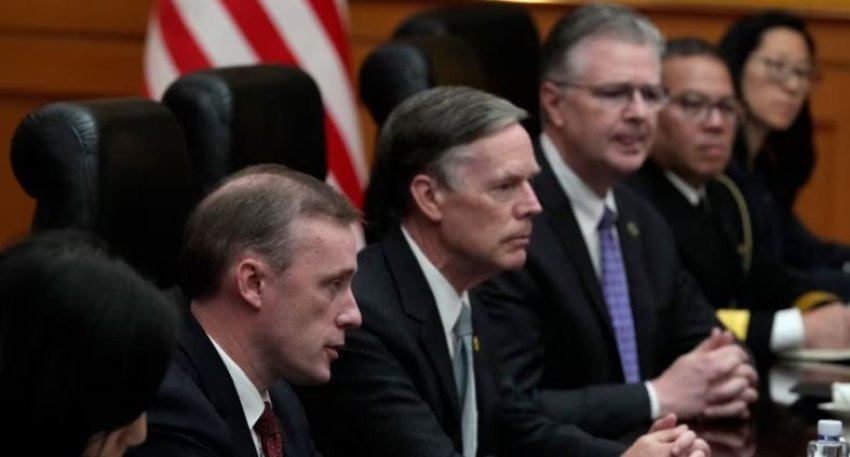WASHINGTON – Beijing adopted a friendlier approach during the visit of Jake Sullivan, White House National Security Advisor, this week, emphasizing cooperation and open communication channels while asserting that Washington continues to have a “wrong” approach towards China’s policies.
Sullivan’s three-day visit to Beijing concluded on Thursday, following meetings with Chinese officials, including President Xi Jinping.
In a statement following Sullivan’s meeting with Chinese Foreign Minister Wang Yi on Wednesday, China’s Foreign Ministry described the talks as “sincere, substantive, and constructive,” a sentiment echoed by the White House.
Sullivan is the first White House National Security Advisor to visit China in eight years, a period marked by increasingly contentious issues such as military relations, cybersecurity, espionage, and the Ukraine conflict.
This was Sullivan’s fifth meeting with Wang since May 2023. They have previously met in Bangkok, Vienna, Washington, and Malta. However, Wednesday’s meeting marked the first time Beijing included some American perspectives in its media statement.
“China and the United States will coexist peacefully on this planet for a long time,” Sullivan was quoted as saying, according to the Chinese media statement. “The goal of American policies is to find a way to ensure the sustainable development of relations between the United States and China.”
According to Beijing’s statement, Sullivan characterized the relationship between the two countries as a mix of cooperation and competition, which aligns with President Biden’s administration’s strategy toward China.
Some experts suggest that China’s willingness to acknowledge American views signals Beijing’s increased readiness to engage with Washington.
Political science professor Dali Yang from the University of Chicago told Voice of America that China had previously resisted the Biden administration’s characterization of the bilateral relationship.
“But it seems the Chinese side is now relatively more open to American viewpoints,” Yang said. “Or at least Beijing has accepted that this is a perspective with which it needs to contend.”
Following his meeting with Minister Wang, Sullivan had a separate meeting with President Xi and senior defense official Zhang Youxia. The discussions focused on Taiwan, the South China Sea, trade policies, U.S. sanctions on Chinese businesses and entities, and conflicts in Gaza and Ukraine.
The meetings appeared cordial. State media photos and footage showed Sullivan shaking hands with President Xi and official Zhang, both smiling.
Despite the friendly tone and cooperation pledges, Beijing continues to suggest that the United States needs to adjust its policies and align more closely with Beijing’s stance on issues.
President Xi told Sullivan that the U.S. should “work in the same direction as China, view China and its development as positive and rational, see each other’s development as an opportunity rather than a challenge, and work with China to find a proper way for both countries to enjoy good relations.”
Official Zhang urged the U.S. to “improve its strategic impressions of China” and respect China’s “core interests,” including halting arms sales to Taiwan and “not spreading false theories in Taiwan.”
Before Sullivan’s visit to Beijing, the Chinese state newspaper Global Times published an editorial criticizing Washington’s “wrong” thinking about China.
“The United States needs to fundamentally change its perceptions of China and its strategic positioning toward China,” the article said.
Chinese political analysts have called for Beijing to remain firm.
In a piece by Shen Yi, an international relations professor at Fudan University in Shanghai, it was suggested that the U.S. is not in a position to make demands of China due to its internal economic difficulties, which, according to him, have trapped Washington.
“China should feel confident that the U.S. needs its help,” he wrote. “In this new framework of thinking, we have reason to believe that China does not need to make compromises with the United States.”
Such hardline views, often promoted by Beijing and adopted by observers and analysts online over the past decade, remain popular on social media. However, Professor Yang from the University of Chicago told Voice of America that Beijing seems to be moving away from such rhetoric.
“At a time when China faces a myriad of challenges and Chinese leaders need to manage and maintain relations between China and the United States, they need to think beyond strong statements and approaches with the aim of achieving some results,” he said.
“In fact, both sides have many common interests,” Yang added.






